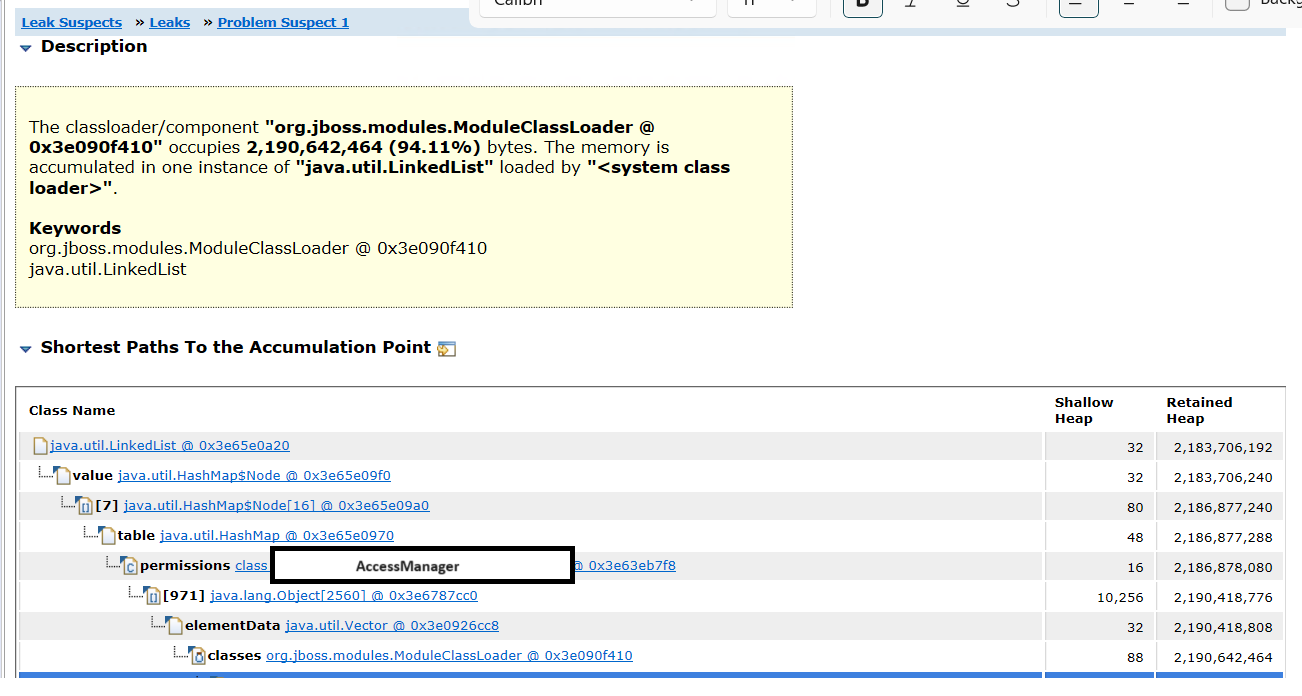I have following code which seems to be causing some memory leaks. This code snippet(i.e. hasPermissions()) get executed every time when a user performs an action.
So from what I understood, since Map permissions is a static object, all permissionsList objects that are created inside hasPermission() method have references to global static object(i.e. permissions); therefore, is not eligible to be garbage collected?
Following is the Leak Suspect showing for its heap dump in Eclipse Memory Analyzer tool. When I navigate to details, it shows the class with following code snippet. I found Java List.addAll() function internally creates LinkedList. I'm still trying to comprehend what's exactly happening here. Appreciate your thoughts.
public class AccessManager {
private static Map <Integer, List> permissions;
public static void init()
{
//initiate permissions and add values
}
public static boolean hasPermissions(List<Integer> accessLevels, String action)
{
if (permissions == null)
init();
List permissionsList = null;
for (Integer a : accessLevels) {
if (permissionsList == null) {
permissionsList = permissions.get(a);
} else {
permissionsList.addAll(permissions.get(a));
}
}
if(permissionsList.contains(action)){
return true;
}
return false;
}
}


Listinstead ofList<Integer>? The ListaddAllmethod only adds to the existing list. It will only be aLinkedListif you started with one. Can you explain what these permissions are for and why you're keeping them in astaticvariable? – Gaudette